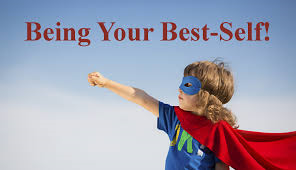
About Being
In the second of our series of articles exploring strengths application in the workplace, Grace Walsh (one of the Bailey & French team) shares a personal story illustrating the difference between weaknesses and overplayed strengths, and how both impact performance:
Some years ago now, before Bailey & French, one workshop to this day sticks out in my mind, as an example of how our behaviour can negatively impact the people around us and how a lack of awareness can be our potential demise.
It was with a senior leader – we’ll call him ‘Andy’ – and his immediate team. In the session we were exploring the concept of strengths, where we asked everyone to identify five strengths and talk more about this strength and how they use it in their work. Some people were tentative in identifying their strengths, taking time to mull over the strengths cards on the table. Andy was quick off the mark to identify his strengths and was the first to be vocal about how he used them and how his strengths had brought him success in their career.
Andy identified ‘Creative’, ‘Curious’, ‘Flexible’, ‘Confident’ and ‘Spontaneous’. The company was a successful, growing marketing and communications business. He spoke fluidly about how being spontaneous and flexible enabled him to adapt and change direction, and ebb and flow with industry trends and client needs. During this time, I noticed the rest of the team quiet and reserved. They didn’t respond to what he was saying or engage with and confirm his thoughts, but merely nodded their heads in agreement when he caught their eye.
We then moved on to exploring and identifying which strengths we can overplay and how that behaviour comes across to others. At this stage, Andy was resolute: he felt he didn’t overplay any of his strengths. He could only see them as such, strengths, and couldn’t give an example of when he had, even once, overplayed any of them. Others in the team were reflective and good conversations formed around the table about not only their effective use of strengths, but also the ones, at times, they overplay.
After the session, when most had left the room, Andy’s assistant came to me and said how working with Andy was becoming more and more difficult and that the company was going through a really challenging time. She said that Andy was constantly changing his mind and that his impulsiveness was causing huge stress and strain, as others in the team were running around after him, picking up the pieces. They already had people leaving the team and in many ways his behaviour was impacting the business negatively.
She continued to say that although everyone respected Andy, and that his strengths (he genuinely was creative, adaptable and confident), had won them initial success. He took risks when they needed to at the beginning to make a name in their industry, when the business was a in a different place and needed a different approach. But today, everyone could see the negative impact his behaviour had on other people, though due to his lack of awareness and over confidence he was not able see this.
This situation reveals the importance of understanding our ‘overplayed strengths’. Andy had used his strengths to bring him and his colleagues success. He was able to sell the vision and people in his team had been inspired by his confidence and his willingness to embrace risks. However, because he couldn’t ‘dial down’ his strengths use, his behaviour became increasingly problematic. I later found out that the company unfortunately continued to flounder and eventually the business closed.
There are distinct differences between an overplayed strength and a weakness. A strength is something we love doing and our energised by. We can often be less tuned in to the potential of this being overplayed, or used badly, because it is part of who we are and we love doing it, so why would we not try use it as much as we can? Weaknesses, on the other hand, are often something we are naturally more aware of, because we don’t enjoy using them – it feels difficult and after we’ve used weaknesses we feel drained of energy.
We can learn to use our strengths better, at the appropriate time and being cognisant of the impact of our behaviour on other people. For example, using humour in a meeting can be a great way to put people at ease, specifically in a potentially tense situation. It relaxes people and, and laughing creates positive emotions which, the research now shows, can help enhance our cognitive ability. And yes, humour is a strength! However, if that humour is overplayed and used in too many contexts and inappropriately, it can come across that we are frivolous and unprofessional.
One way to build awareness is to seek feedback from colleagues and friends. The most successful and emotionally intelligent people I’ve worked with and coached look and ask for feedback regularly – feedback is viewed as an opportunity to learn and grow. It is welcomed. With the situation above, Andy didn’t look for feedback. In the workshop, it would have been a great opportunity to ask if other people had examples of when his strength overplayed. However, he didn’t ask and the more he continued to talk only about the upside of his strength the more unlikely people around him were comfortable in saying anything different. And, when challenged, it was unfortunately met with resistance.
To help organisations build awareness around strengths and how to apply that knowledge most effectively, we’ve developed a series of six 45-minute workshops. Click here for the range of workshops. Held via an online learning platform, team members can dial in from wherever they are, making the sessions scalable and accessible across multiple sites. Simple and practical, they are designed to be both enjoyable and highly relevant to day-to-day life – helping the learning to stick.
Over the next two weeks, we’ll be posting articles every day, exploring each of these areas from a theoretical, business or personal perspective. Follow us on LinkedIn to make sure you don’t miss them, and for more information drop us an email or give us a call on 01273 830830.

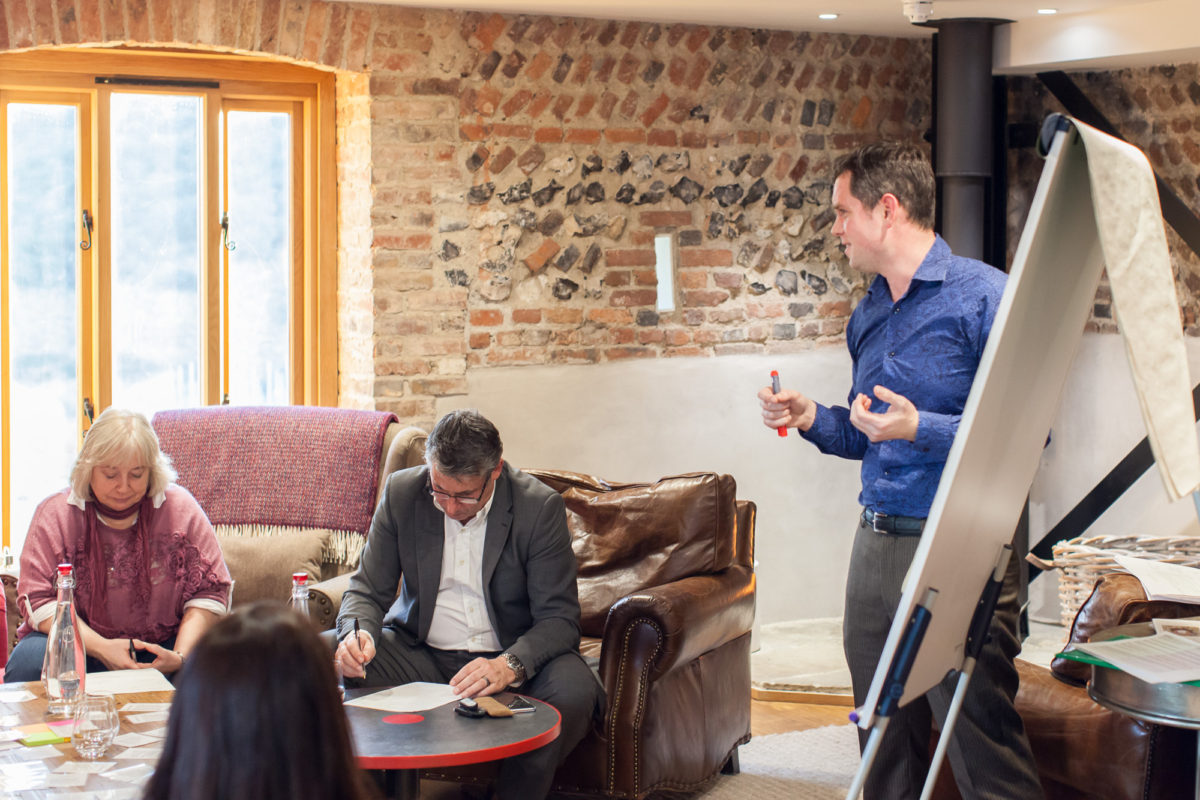
About From
In the first of our series of articles exploring the application of strengths, Joshua French (one of the Bailey & French team) shares his experience of building on his strengths to craft a working life he loves:
At 24, I felt like I’d failed already. As a teenager I’d become increasingly certain that I wanted to be an actor, and so went to drama school to fulfil that dream. By 24, I was struggling to make a living from acting, and every fibre of my being was telling me to let go and move on to something else. It was a hard decision because, although I didn’t want to live the life of an actor any more, there were aspects of acting I was good at and loved and didn’t want to say goodbye to: empathically connecting with an audience, exploring emotions and ideas, and being playful and spontaneous on stage.
These, in fact, are all strengths of mine, things I excel at and am energised by. To label them, I’d say, ‘empathy’, ‘explorer’ and ‘playfulness’. By rigidly thinking acting was the only job could use these in, I’d set myself an unhappy trap. I’d fixated on one career, without realising that using my strengths was the important thing, not the job! After moving on from acting, I soon found that those same strengths could be used in any role.
A few more steps on the journey of self-discovery later, I realised that to truly thrive in work and life I’d need to shift perspective about my growth and development too. Climbing a career ladder would never give me the happiness I wanted. What would? Getting better and better at using my strengths, and using them in increasingly meaningful ways: working with others to improve society. There’s a big chunk of research to back up that this is a genuine route to happiness too*.
So how can we get better at using our strengths, developing mastery over them and becoming happier and more successful in the process? Here are three ideas:
Use Strengths for Fun
Whether we have a little or a lot of leisure time, it is wise to dedicate this time to activities that use our strengths (rather than watching TV, say). For example, because I have an ‘explorer’ strength, every weekend I try to make sure I visit somewhere new, and read non-fiction. Every moment using a strength helps develop it.
Recraft Work and Life around Strengths
Many of our routine day-to-day activities at work and home can be approached creatively, harnessing our strengths and transforming our enjoyment of them. For example, I don’t enjoy writing emails, but by imagining I’m talking directly to the person I harness my ‘empathy’ strength and find it much easier and more energising.
Collaborate More Effectively
By being authentically honest about our strengths and weaknesses we help create the conditions for those around us to be the same. Then, whether we are discussing the implementation of a strategy or the tidying of the house, we can have a conversation about dividing up the work so it gives everyone maximum opportunity to play to strengths.
At 24 I stopped being an actor. Now, at 36, I’m a consultant (a ‘normal-sounding’ job I wouldn’t have even considered in my teens). I love it. I get to empathically connect with audiences, I get to explore emotions and ideas, and I get to be playful and spontaneous. I get to use all my strengths in my role, I’m much stronger and happier than I was before, and I’m clear about where I’m heading.
*For examples, visit http://www.viacharacter.org/www/Research/Featured-Research
To help individuals and organisations use their strengths most effectively, we’ve developed a series of six 45-minute workshops teaching people how to apply them in different workplace scenarios – find out more here.
Over the next two weeks, we’ll be posting articles exploring each of these scenarios from a theoretical, business or personal perspective.

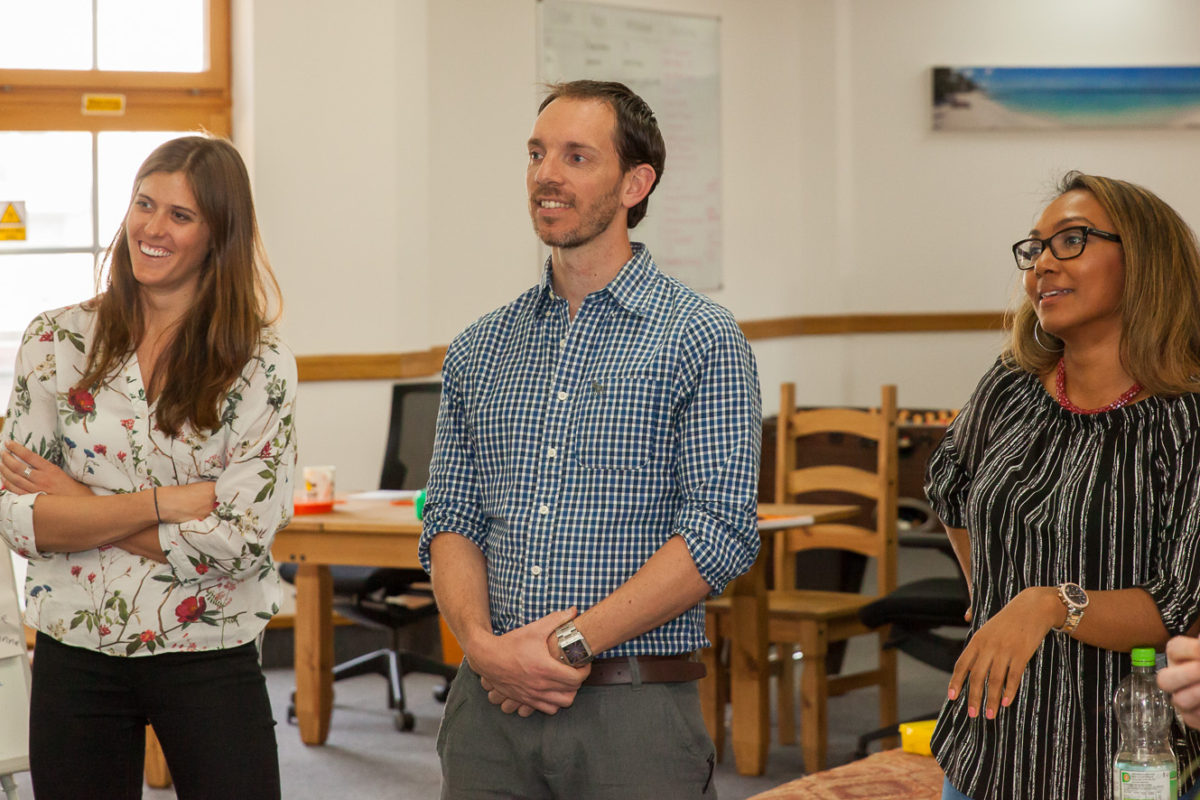
About So,
Around 150 years ago, Sir Francis Galton (among others) developed the field of psychometrics, exploring the characteristics that we possess, and how these might make us more or less successful in our environments. We’ve been enthralled by trying to ‘measure’ ourselves and others ever since – most recently through a wave of online tools designed to quantity our personalities, attitudes, and beliefs in the workplace.
Unfortunately, these psychometric tests don’t really engage us as human beings. They’re most often undertaken alone at a computer and result in complex reports that we scan once or twice before relating to a drawer (if we’ve even been interested enough to print them off). Very few of us do anything with the awareness and learning they can provide.
Discovering our strengths – the things we enjoy and excel at – builds on the understanding we might have gained through these kind of tools, but the same criticism can be levelled: just knowing our strengths doesn’t really change very much. The real power lies in being able to apply this knowledge in a practical and relevant ways for our roles and organisations.
To help organisations do this most effectively, we’ve developed a series of six 45-minute workshops, supporting all people to apply their understanding of their strengths to improve individual and team performance:
Workshop 1: Building on our strengths
Identifying ways we can use our strengths more often and more skilfully
Read Joshua’s article, sharing his experience of building on his strengths to craft a working life he loves
Workshop 2: Being our best
Exploring overplayed strengths and weaknesses, and how we can work around these
Read Grace’s story, illustrating the difference between weaknesses and overplayed strengths, and how both impact performance
Workshop 3: Making our goals meaningful
Creating inspiring goals that reflect our strengths and values
Check out this article, exploring how we can set really motivational goals
Workshop 4: Growing our careers
Evolving our thinking and conversations around our learning, growth and career progression
See this article, offering an alternative to climbing the traditional career ladder
Workshop 5: Collaborating effectively
Understanding how to work together better to leverage everyone’s strengths
Read this piece on working successfully as a collaborative team
Workshop 6: Inspiring our clients
Learning how to use our strengths to be more creative and productive for our internal and external clients
Held via an online learning platform, team members can dial in from wherever they are, making the sessions scalable and accessible across multiple sites. Simple and practical, they are designed to be both enjoyable and highly relevant to day-to-day life – helping the learning to stick.
For more information drop us an email or give us a call on 01273 830830.
What if we’ve not done any work on strengths?
While it’s useful for participants to have some understanding of their own strengths in advance of the sessions (e.g. to have attended a ‘Strengths Discovery and Strengths Spotting’ workshop), it’s not essential. Workshop 1 is designed to develop a basic knowledge of personal strengths as a starting point, drawing in any previous self-awareness work (e.g. results from psychometrics or feedback from annual reviews).


About Words
I meet many leaders who love to share their ‘modern’ people-centred leadership ideas. They brilliantly and comprehensively tell me how they know and ensure that their staff are at the centre of the organisation. They reel off long lists of interventions that they sponsor and champion to help their staff enjoy their work whilst aiming for high performance.
Why do so many interventions that have all the best intentions fall short? Perhaps one of the reasons is the language leaders use. Often, it can hold them back from truly connecting with the people that work with them (not for them – did you see what I did there?).
For example, I’ll let you into a secret. People hate being called staff. Some people hate being called employees too, and of course there is no current situation whereby we should still be using the word subordinate. Some companies have moved to using colleague or partner but that’s not that far removed from employee. Why not just use people? In most circumstances, it is possible. Try it.
Some of us are still stuck in the habit of using language that’s from a bygone era, from when the world of work was very different. So, it might be a good time for a reflection point.
Let’s explore some traditional vs. modern terminology. Which of the following do we recognise ourselves and others using?
| Traditional | Modern |
| ‘Staff’ | ‘People’ |
| ‘Performance Management’ | ‘Performance Motivation’ |
| ‘Talent Management’ | ‘Talent Movement’ |
| ‘Change management’ | ‘Cultural Evolution’ |
| ‘Top Talent’ | ‘High Performers’ |
| ‘Areas for Development’ | ‘Weaknesses’ |
Staff – People. That was an easy one – let’s move on.
Do we really need to manage people’s performance if they are genuinely engaged with their work? Aren’t they able to manage it themselves? No wonder ‘being performance managed’ has become a byword for exiting people who are struggling or disengaged. This modern world needs leaders to motivate performance, not manage it.
In the same way, we don’t need to manage talent. Instead, we can focus on identifying everyone’s true talent, nurturing it and then freely moving around the organisation, to maximise its impact and helping everyone grow and flourish.
Change management. This one gets me so fired up. Telling people that we need to change (‘or transform’) means you – the people in this organisation – are not good enough and need to be different. People may then be led through training to develop resilience to deal with whatever is happening next. Shockingly, the Kubler Ross change curve is still being used in organisations to help people understand the mixed emotions they might go through when being managed through such a change. This derives from a piece of research based on the emotions that people experience when they are told they have terminal cancer. I for one do not believe this is applicable to how people feel being told their company will rebrand… do you?
I propose talking about cultural evolution, supporting our people to develop a growth mindset and the ability to help the organisation learn, grow and evolve continuously, incrementally, rather than trying to achieve a ‘change’ in 3 months, which funnily enough rarely seems to work.
Top Talent is a phrase indicating that some people have more talent than others, or have talent that is better than others. This is not true. Everyone has unique and valuable talent. Yes – every single human being in the world. We can have the best intentions when we say, ‘top talent’ but can fail to recognise the disrespect it reflects on the rest of the people who haven’t been given that label. High performers are different. They have applied their knowledge, skills and strengths to achieve great performance or motivate the great performance of others.
Finally, why oh why do we shy away from being open and honest with people? Everyone has weaknesses in the same way everyone has strengths. Why couldn’t an area of development be a strength, something we already love to do and are awesome at? This approach to development can much move us much faster towards being a master at what we do. If we don’t ignore weaknesses, but address them head on and find strategies to make them irrelevant (such as collaboration or recrafting our roles), they will no longer be something we need to keep focusing on.
With all these shifts of language, the underlying principle I am getting at here is respect. Respect is the number one factor that affects performance in any organisation, any industry, any market and any country. Many of the traditional phrases we use are quite simply disrespectful, even if our intentions are good. This is why, if we want to be truly modern leaders, we need to use language that reflects our deep level of respect for those we work with. If we can get this right, it becomes easy to connect with people – people hear and feel the difference in our perception of them, and the positive response can be overwhelming.
So, when you write your next company blog update, or kick off your next town hall, roadshow, or skip level, do pay attention to the words you are using. They have power.
What are your thoughts? Are there any words and phrases that rile you up that I haven’t covered? It would be great to hear your views below.
We work with all organisations, all markets/industries, all levels of leaders, anywhere humans are working to help build better organisations through Strengths Based Leadership, Performance Motivation and Wellbeing. Click here for more information on what we do https://www.baileyandfrench.com/what-we-do/
Get in touch to talk with me about how we can help your people and organisation grow and evolve positively 01273 830830 alex@baileyandfrench.com

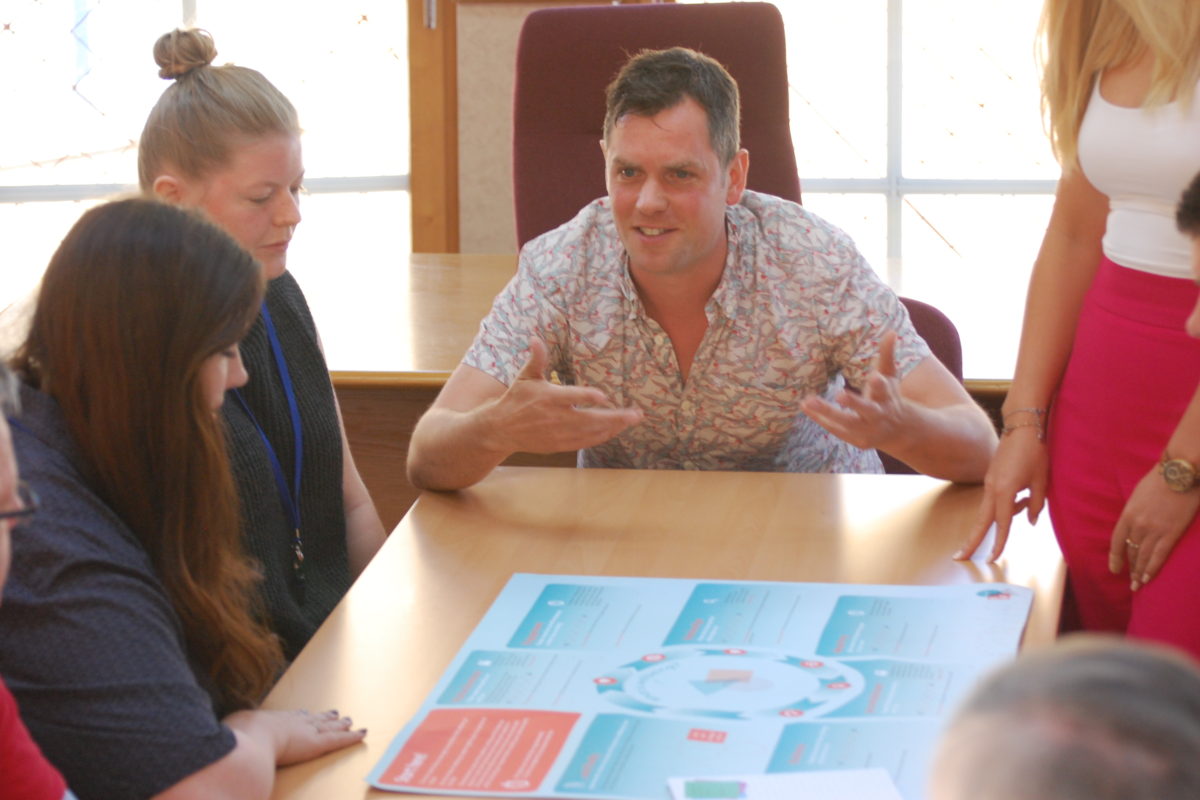
About Got
Got a Wellbeing Week coming up? Don’t know where to start or what activities to offer? Want to do something different with a real long-term impact?
Wellbeing is front of mind for many organisations, using Wellbeing Weeks/Months as a way to engage people and build awareness. However, coming up with the activities and promotional events that are impactful and cost effective can be difficult.
As speakers and specialists on the topic of emotional and psychological wellbeing, we can support your Wellbeing Week in a range of ways – including delivering ‘drop-in’ style workshops designed around the pillars of positive psychological wellbeing to enable flourishing and thriving (i.e. PERMA+R model, for any positive psychology geeks out there!). We have something to suit every budget and agenda.
Speaking and Mini-Sessions
• Interactive Speaking Presentation: Introduce the PERMA+R model that supports flourishing and builds resilience. Includes a quick exercise around the key foundations of wellbeing and practical tips to strengthen our own and others’ engagement and wellbeing. See us in action!
• Wellbeing Team Conversations: Facilitated workshop working around the Wellbeing Conversation Mat, groups are encouraged to articulate what each pillar means to them, how they experience it at work and at home, and defined actions to strengthen wellbeing for all. These can be delivered for small or large groups (up to 200) and usually take around 2-3 hours.
Workshop Series
Workshops are 45mins long and can be run simultaneously or back-to-back throughout the day. People have the opportunity to learn the skills and techniques to support each pillar of positive psychological wellbeing:
• Sustaining Positive Emotions: This session explores the differences between ‘happiness’ and ‘wellbeing’. We look at how happiness contributes to wellbeing, and the benefits of cultivating positive emotions.
• Creating Engagement: In this workshop, we discover some of our core ‘strengths’ – things we excel at and are energised by. We also explore Mihaly Csikszentmihalyi’s concept of ‘flow’ – a state of ‘losing ourselves’ in a task – which has a positive effect on our wellbeing, and most often occurs when we use our strengths.
• Developing Positive Relationships: This workshop explores the importance and benefits of relationships at work. Based on the work of Jane Dutton, we explore three methods – trust, task enabling and respectful engagement – to build ‘high quality connections’.
• Finding Meaning: This session is the deepest and most thought-provoking of the series, exploring what makes life worthwhile. In line with the work of Viktor Frankl, we look at ways to experience and create purpose in our lives.
• Encouraging Achievement: In this session, we look at the benefits of an optimistic mindset, and how this can be developed to increase our sense of achievement
• Building Resilience: This session draws our learning together to relate it specifically to stress. We look at the neuroscience of threat, and how we can minimise our negative emotions and behaviours in difficult situations.
We also offer a range of products and tools, including Wellbeing Notebooks and Conversations mats. To purchase these directly via our online shop click here.
Our products and workshops are a proactive approach to support wellbeing that gives people the skills and techniques so they are better equipped to handle all of life’s challenges. Based on the PERMA+R model of wellbeing we empower people to be their best selves and flourish and thrive.
For more information on how we can support wellbeing more broadly email us at info@baileyandfrench.com or call +44 1273 830 830.

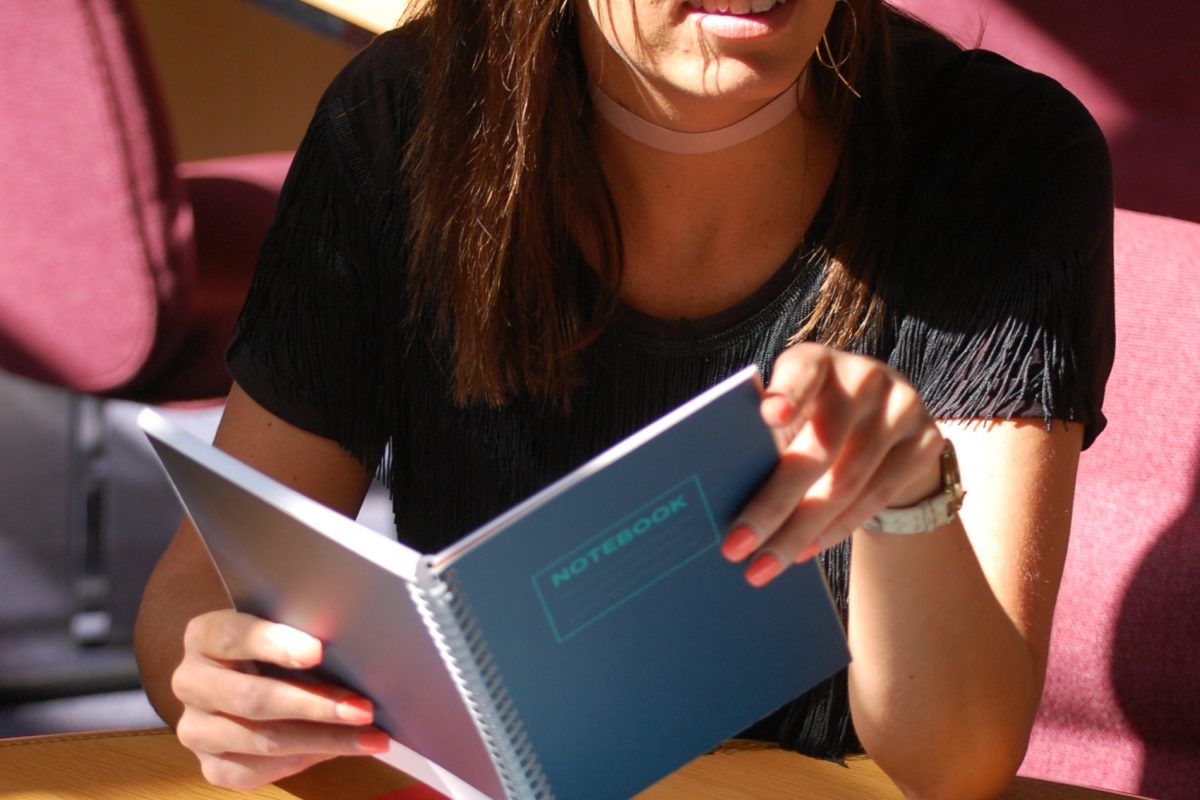
About Got
Got a Wellbeing Week coming up? Don’t know where to start or what activities to offer? Have you got a limited budget?
Wellbeing is front of mind for many organisations, frequently starting with a Wellbeing Week to engage people and build awareness. However, coming up the activities and promotional events that are both impactful and cost effective can be difficult.
At Bailey & French we have a range of tools and workshops to support all needs and budgets, from simple take-away Wellbeing Notebooks to ‘drop-in’ sessions designed around the PERMA+R model of wellbeing. One easy and cost effective approach is to offer our Wellbeing Conversation Mats and/or Notebooks.
Wellbeing Conversation Mats
• Simple, self-facilitating A1-sized table Conversation Mat designed to be used by groups of up to 12 people
• Provides a simple and safe platform for engaging teams and groups around the key foundations that impact wellbeing
• Opens with, ‘What is wellbeing?’ and moves through each of the PERMA+R foundations in turn
• Can be done in any space – only needs a table, pens and participants
Wellbeing Notebook
• Notebooks can be ‘gifted’ during Wellbeing events or workshops
• Fun and insightful, with reflection prompts on each page so learning becomes part of every day
• Packed with interactive activities, reflection questions and practical tasks, designed to keep wellbeing front of mind
• Encourages individuals and teams to take regular action for their own wellbeing
To purchase the Wellbeing Conversation Mats and Notebooks directly via our online shop click here.
We also offer a range of speaking events, facilitated sessions, and workshops which can be stand-alone or run as a series of 45min drop-ins throughout the day. For more information click here.
Our products and workshops approach wellbeing in a proactive way, giving people the skills and techniques so they are better equipped to handle all of life’s challenges. Based on the PERMA+R model of wellbeing, we empower people to be their best selves and thrive every day.
For more information on how we can support wellbeing more broadly email us at info@baileyandfrench.com or call +44 1273 830 830.

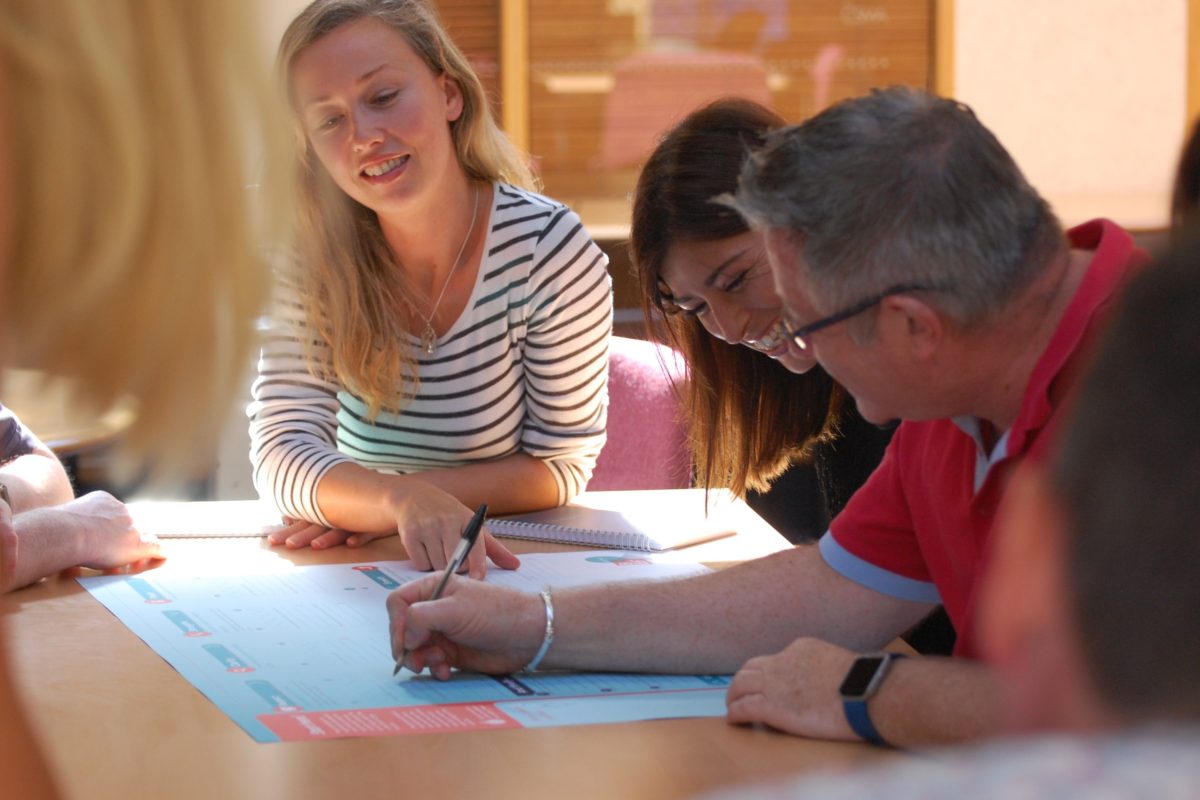
About Need
Wellbeing activities are on the to-do list for many of us, but how do we know where to start?
Martin Seligman’s PERMA model provides a simple, research-based framework, which we at Bailey & French have used to create this simple conversation mat. This self-facilitating team tool is designed to focus attention on how we can build psychological wellbeing in our workplaces and what we should prioritise.
It’s an ideal activity for wellbeing weeks and away days, providing a simple platform for engaging individuals and teams with positive, proactive mental health. You can find out more and buy mats directly on our website. And if you’d like to talk more, just drop us an email or call us on +44 1273 830 830.
Best wishes,
Amy
ps. if you have outstanding L&D budget for 2017, we’re offering credit against wellbeing programmes for 2018 – contact us for more details.




About Why
Think about those moments when you lose yourself in something and forget about time, or feel… I was born to do this!
Using our strengths every day makes us feel good; it allows us to get into flow and enables us to reach peak performance more frequently and easily. Not only that, but studies consistently show that being able to use our strengths for more hours each day leads to greater happiness, optimism, gratitude, performance, and meaning, and lower stress, sadness, depression and anxiety(1). Pow!
It is also clear that the best performing managers align talents with projects and emphasise strengths over seniority when moving and managing talent(2). I have been the benefactor of this approach, and I’ll tell you what, it made me feel great and had the right results.
Why do strengths matter for recruitment?
Understanding a candidate’s strengths enables us to more accurately predict how they will show up in role, and what will engage and motivate them to reach high performance. It enables us to ensure we have the right candidate for the right role, and equips both the candidate and manager with knowledge that will help them find intrinsic motivation from day one.
“At the end of the session, one of the guys came up to us and basically told us how he had never focused on what he was great at before in his whole career and that it had been so powerful for him. It was INCREDIBLE.”
– assessor at strengths focused Assessment Centre
There is challenge in the fact that people are often unaware of their strengths, or only think of their strengths as the things they are good at – missing the key point of what they actually enjoy! Having worked with psychometrics and now without, I believe that whilst psychometrics give you awareness, great strengths interviews/conversations build awareness, accountability and application. Since strengths are not just the things we are excellent at, but also find energizing and essential, it is critical that each person defines their strengths for themselves (learn more about our approach here).
Imagine the consequences if we hired someone whose strengths were in Strategic, Engaging and Achieving, and we brought them into a detail heavy admin role. How would they feel? How would they perform?
What if instead, we realised their Strengths and brought them into a client facing, or sales role? How would they feel? How would they perform?
Still wondering what strengths are?
An easy way to think about strengths are as the things we are EXCELLENT at which we also LOVE doing. Using our strengths, perhaps around being analytical, or detailed, or engaging, gives us energy, and for that reason we often find that we use them in all aspects of our lives, especially outside of work. Some of us (the lucky ones) have found jobs that utilise our strengths every day, however some of us are still on that journey. And, with the right questions we can create a great learning experience for applicants while also allowing us to understand them better and know how to best support them in those early on-boarding stages. It’s a win-win!
At Bailey & French we help build strengths based organisations, where every person can play to their strengths every day. This starts in recruitment, ends in positive exiting, and touches all people processes in between. To learn more about how we work with organisations like yours, visit our website and get in touch.
1 Asplund, J. 2012; Harzer & Ruch 2012; Kashdan, Julian, Merritt, & Uswatte, 2006; Steen, Seligman, Peterson, & Park 2005
2 Clifton & Harter, 2003


About Why
Employee engagement scores from surveys or otherwise are looking ok to fairly good whilst at the same time there are increasing levels of stress, sickness absence and turnover and it’s puzzling us.
It’s because engagement is different to wellbeing and we can’t think we have done enough through simple EE interventions alone. Yes, there are similarities but we must do more.
I’m always replaying back what we are hearing from our clients as I know it’s useful to others to hear trends, particularly if you are a small People/HR team to know that we are not alone and often facing the same issues and also for those who are so entrenched in massive workloads that they often can’t get to events or spend time focusing externally.
We have been leading several events/sessions lately regarding wellbeing and spoken to hundreds of people exploring this hot topic.
I have been particularly fascinated and driven to find out more about the distinction between Employee Engagement and Wellbeing and shared our recent learning on reflection of HR interventions over the last 15 years – see here for our article on the HR Innovation Curve.
This led us to focus on 3 main differences that shift Wellbeing from being another EE initiative to a new focus and phase in its own right, in terms of building a positive work environment for flourishing and thriving.
They are:
1. Wellbeing is about the whole person
2. Wellbeing is about everyone and
3. Wellbeing is about work and beyond.
These distinctions help us consider how to innovate our approach to really build Wellbeing positively for people in their everyday work and roles rather than just ticking the box by providing mindfulness or yoga classes to help cope with negative working practices.
Here are some examples that we offer for each element:
1 – whole person – we need to support people to develop deep self-awareness and confidence in being ourselves, our best selves, embracing our unique and wonderful differences – discovering strengths using our own personal life experience is excellent for this and something we witness time and again rather than a simple assessment that puts us in a box and can leave us deflated. It is only when we are confidently aware of how to be our best version of ourselves that we will bring our whole selves to work and be proud to do so.
2 – is about everyone – typically interventions in organisations target leaders and whilst we know that leading others is still important, we can also support everyone to take accountability for their own performance and wellbeing, empowering everyone rather than pressuring managers to do even more. Our wellbeing and performance motivation conversation mats and workshops are aimed at everyone and therefore scale up and accelerate the value from performance improvement programmes.
3 – work and beyond – engagement often stops as we leave our place of work, whereas our wellbeing continues beyond. We know that how we feel at work impacts us outside of work and we need initiatives to support people’s wellbeing to encompass those elements too.
For example, our PERMA wellbeing workshops teach people simple but effective techniques to improve elements like relationships in work that are as relevant for relationships outside of work.
For more information on our wellbeing programmes, including our wellbeing conversation mat, workshops and notebooks, email us or call +44 1273 830 830. To purchase the wellbeing conversation mats and notebooks directly via our online shop click here.
Alex Bailey

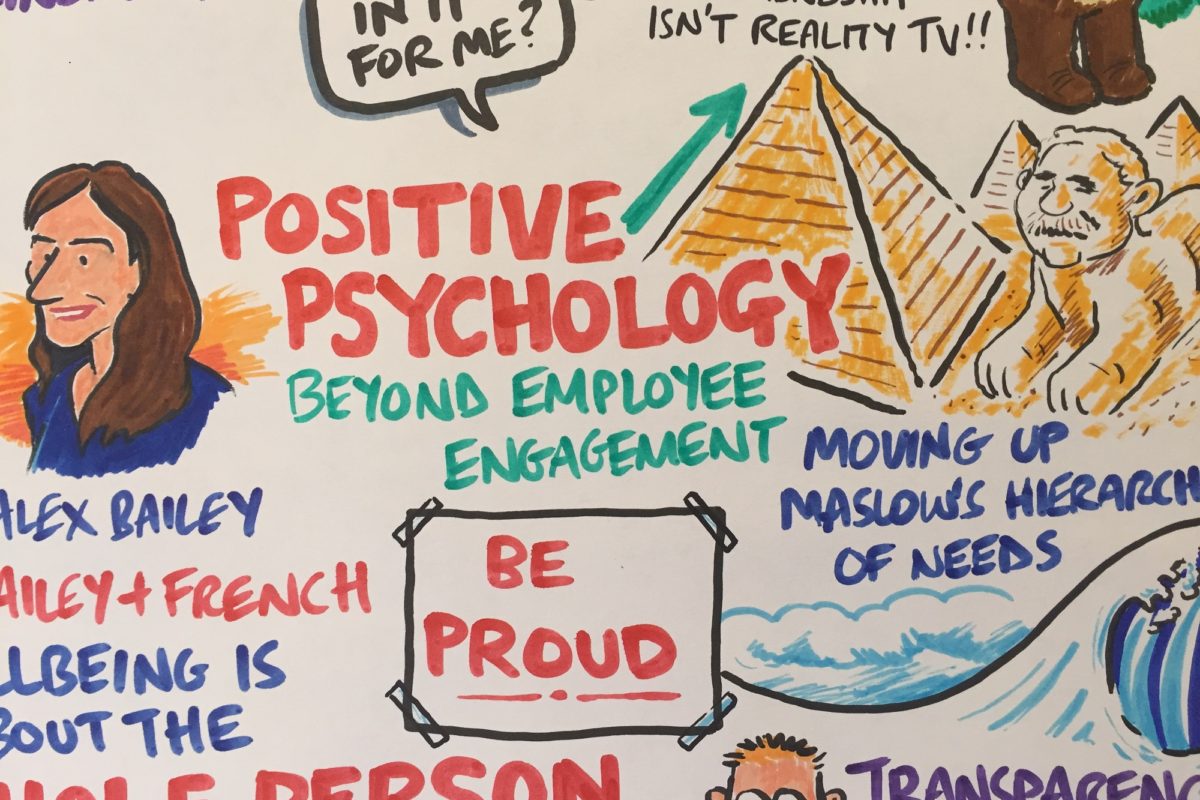
About CIPD
Alex Bailey, of Bailey & French, talks at the CIPD Sussex Branch Conference, Thursday the 14th September -‘The Future of Work is Beyond Employee Engagement’.
Alex introduces the HR Innovation Curve, “designed to show exactly where we need to be focusing our attention if we want to be our best, most innovative selves and build the best organisatons we can. It also tells the story of this evolution of needs. In the session, Alex focuses on three points 1) How Wellbeing is more than Employee Engagement, 2) Explores a positive model of Wellbeing that supports that distinction and 3) How we can innovate People functions in the future to really help people flourish at work and beyond.
Enjoy!
For more information on our wellbeing programmes, including our wellbeing conversation mat, workshops and notebooks, email us at info@baileyandfrench.com or call +44 1273 830 830. To purchase the wellbeing conversation mats and notebooks directly via our online shop click here.
